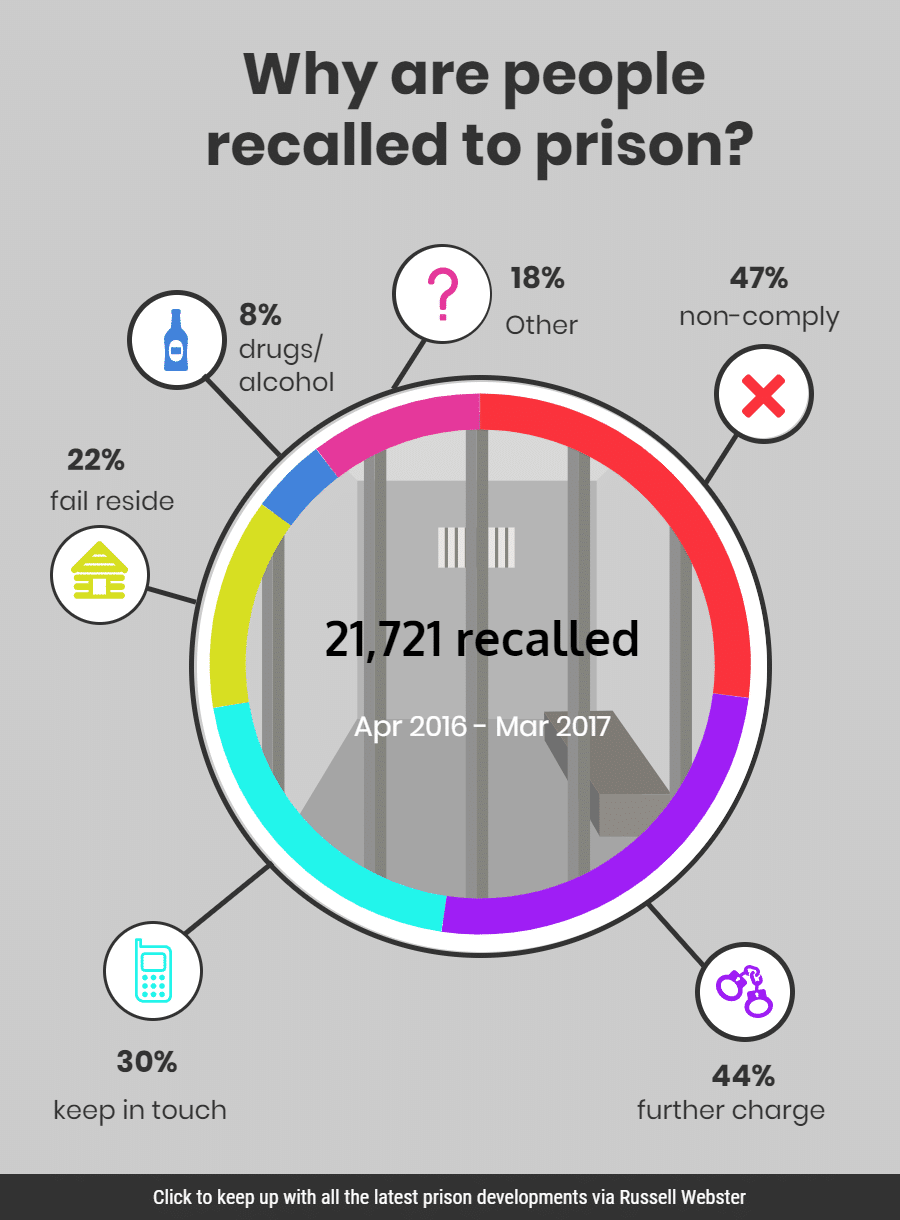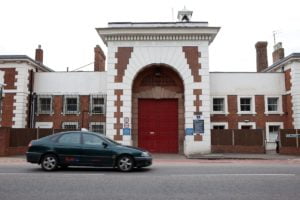Justice Committee hearing
At yesterday’s (18 October 2017) Justice Committee hearing into the work of the parole board (which you can watch here via Parliament TV if you’re interested), Nick Hardwick, Chair of the Parole Board, discussing why so many people (3,300) subject to Imprisonment for Public Protection (IPP) were still in prison, despite IPPs being abolished in 2012, said:
The most significant issue with the IPP problem now is that more than 50% are being recalled, not necessarily because they’ve committed another offence, but because they’ve broken their licence conditions – and that’s a real problem.
So, we’re letting them out, but they’re getting recalled often for relatively minor breaches of licence.
Mr Hardwick went on to say that IPP offenders were being sent back to prison for reasons such as turning up drunk at their probation hostel – even though that presented no risk to anyone.
Recalls
The issue of released prisoners being recalled has become increasingly topical over the last few years with a number of commentators pointing out that the numbers were so large that they were now making up a significant proportion of the prison population.
I thought readers might be interested in why people are being recalled and Martin Jones, Chief Executive of the Parole Board, was kind enough to point me to the most recent figures.
According to these figures, in the twelve months between 1 April 2016 and 31 March 2017, a total of 21,721 individuals were recalled, 481 of whom were IPPs.
The MoJ records six reasons for recalls:
- Further charge;
- Non-compliance with their licence conditions;
- Failure to keep in touch;
- Failure to reside where directed;
- Breaking licence conditions relating to alcohol or drugs; and
- Other
Many individuals are recalled for more than one reason (which is why the total number of reasons for recall add up to 605).
Almost half these IPPs (224/481 = 47%) were recalled because they were charged with a further offence.
However, 267 (56%) were recalled for non-compliance; 120 (25%) for “fail to reside”; 86 (18%) for drugs & alcohol; 47 (10%) for failing to keep in touch and 85 (18%) for other reasons.
The chart below shows the breakdown of reasons that all 21,721 released prisoners were recalled last year (again, the number of reasons adds up to more than the number of people recalled).
A key point is that the majority (12,056 or 56%) had not committed a further offence.

If you’d like a copy of the infographic in interactive pdf format, please: Email me.
All prison posts are kindly sponsored by Prison Consultants Limited who offer a complete service from arrest to release for anyone facing prison and their family. Prison Consultants have no editorial influence on the contents of this site.








4 Responses
There are undoubtedly a number of interconnected reasons contributing to this frustrating and unhelpful consequence of criminal justice policy over the past 10 years of so. Some of the more important factors contributing to the ‘revolving door’ of prison release arrangements include: 1. the obsession with risk (of both re-offending and in terms of risk of harm) as opposed to meeting need; 2. the triumph of process and managerialism over relationships and professionalism. Notwithstanding the interest in desistance theory over the past few years, there has been scant encouragement to respond to the uneven journey towards a crime free existence with the required and appropriate flexibility and willingness to re-draw and re-negotiate the boundaries of the offender/worker relationship; 3. the wholly contractual cash-driven relationship between criminal justice agencies and community based organisations working to rehabilitate offenders and help their families. There was much that was wrong and self-indulgent in probation practice in the 80’s and early 90’s but the response to that was an increasingly rigid and bureaucratic adherence to process and ‘bean-counting’ target driven policy. What might be helpful now is for some courageous leadership from both politicians and senior civil servants to effect the release of IPP’s who are beyond their tariff dates and to reign in the authoritarian and risk averse practices of probation staff in both the public and private sectors.
Thanks for such a cogent comment, Malcolm. Of course I think it’s cogent because we share many of the same views. I do think Martin Jones (Chief Exec) & Nick Hardwick (Chair) of the Parole Board are doing the best they are allowed to do in terms of IPPs. See Martin’s new post on this blog tomorrow (Wednesday 25 Oct 2017) for the latest.
Best Wishes
Russell
I myself think qlot of prisoners are being failed once they are in yhe system wow they never get out these recalls they need a good look at recalls for bad behavior I no some body who was pulled by police took yo be questiond an probation recalled him no charge nothing this is y the prisons are full an money is being wasted asbt even seen probation in 14 months of being out just phone calls plus 3 different officers not 1 warning complied to everything this is a family man awell main carer for his wife who is now left with 4 children an disabled they shud not be recalled unless charged or guilty y not use the new GPS tag to monitor them y there under investigation give them courses qn help for mental health as this nam suffers really bad he has adhd also but they just throw them away it’s not good for them they just go inside an forgot about cos it’s months qn mo the of waiting for app atkeasr outside they have family support whilst they await for help an support it so so sad the amount of people on recall for the tiniest thing .
What about faults with the probation , extravagant additional licence stipulations that anyone in the wider community would struggle to abide by. Their lack of communication and advice with self help and the needs of change with addiction and mental health. It has become general knowledge that they are pushed to their limit and some offenders who are playing the game will be less review while others who are struggling in one way or another are badgered into completing work books amd not face to face support.
Also lack of communication with the family and outside those walls cancelled followup appointments an alternative po due to sickness, r leave they have to accept these changes without complaint , or the process taking its time.
I am aware of an offender being returned to prison just because his po read his history and hadn’t got the time to process his needs being returned on recall of licence, without even being issued a licence, these mistakes do happen